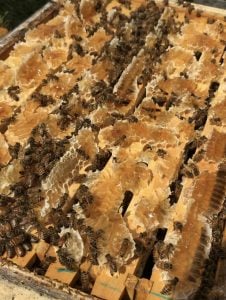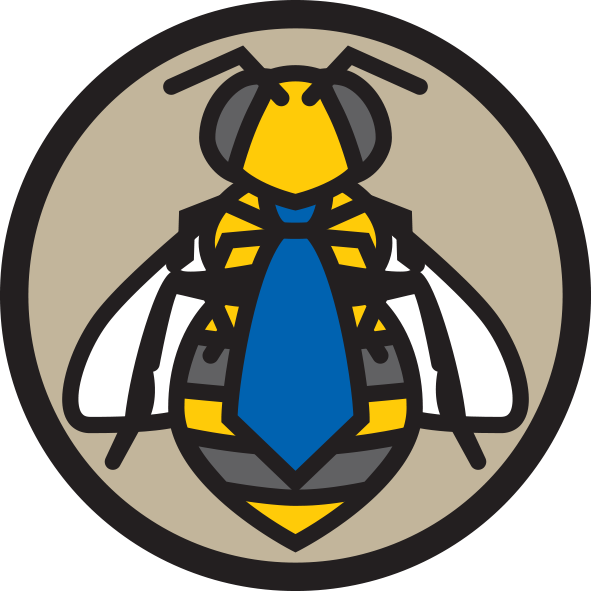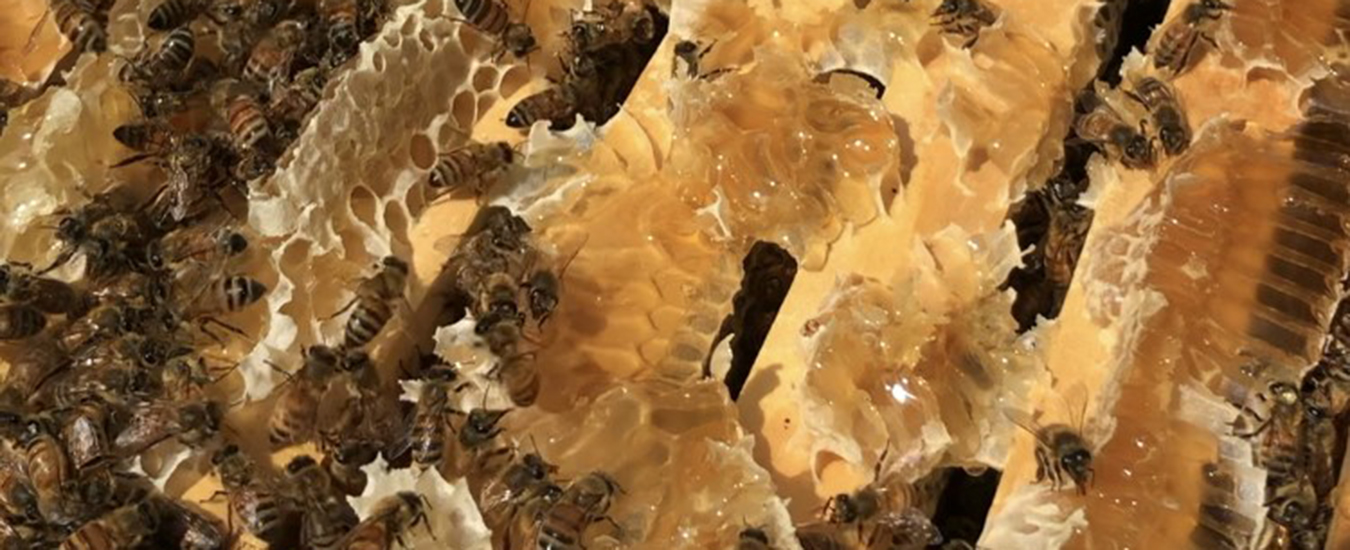Honeybees have an amazing ability to process and store nectar in the form of honey, which plays a fundamental role in maintaining colony health. Honey consumption has far-ranging impacts on nutrition, resilience to pathogens, toxin tolerance, bee longevity, developmental regulation, immunity, and stress response. Beekeeping practices that substitute sugar solutions for honey may provide the hive with general nutrition, but this could have consequences on numerous aspects of bee and hive health.
Nutrition & Storage

Busy bees at Tocal Agricultural College
Honey is the main source of energy for bees to carry out their day-to-day activities. Being able to store honey protects the hive from nectar shortages when foraging is not possible due to the season or the weather.
An individual bee may forage from only one or a few floral sources. However, at the level of the colony and over a whole season, a wide range of nectars can be collected, processed, and stored as honey providing a more consistent diet across the colony.
Incredibly, the ability to store various products in the hive including honeys, resins, and pollen, is thought to allow bees to adapt their food source and behaviour based on the health status of individuals or the needs of the colony in order to manage health challenges.
Antimicrobial Mechanisms
Honey has a vast suite of antimicrobial mechanisms. These have mainly been investigated in relation to their benefit to humans, however they have obviously evolved to protect honey, bees, and the hive from microbial attack.
These antimicrobial mechanisms can be broadly categorised into those that work when the honey is undiluted, or when it is diluted with water. When honey is undiluted, the high sugar content, low water, and acidic pH all contribute to the antimicrobial mechanisms and act to prevent spoilage during storage and prolong its life in the hive.
When honey is diluted, hydrogen peroxide and other compounds derived from nectar and bee secretions contribute significantly to the antimicrobial mechanisms. Ensuring protection of diluted honey is essential to the hive as nurse bees dilute honey with water before feeding it to larvae and adults because of its high viscosity.
Other Ecological Benefits
Honey has many other properties that enhance bee health and protect the hive against various stresses. Honey plays a role in the detoxification of nectar – there are many potentially toxic chemicals collected in nectar that are neutralised by enzymes as the honey is ripened. Consumption of honey has been shown to enhance tolerance to other ingested toxins, both natural and synthetic, including mycotoxins produced by some fungi, and various pesticides and insecticides.
Aging in bees is associated with oxidative damage, and there are various antioxidants in honey which protect bees from this damage preventing premature aging and enhancing bee longevity. Studies have shown that some plant-derived chemicals in honey can influence developmental pathways meaning that honey potentially plays a role in caste determination.
Various components of honey are involved in stress response and particularly, promoting cold tolerance in bees during overwintering. Understanding the diverse functional properties of honey has far-ranging implications for bee and hive health as well as management by beekeepers.
Unlocking the secrets of an ancient antimicrobial, honey, using modern science
(Dr Nural Cokcetin, Microbiologist, University of Technology Sydney, Australia, presentation to the Australian Apitherapy Association conference November 2021.)
Acknowledgements:
- NSW Bushfire Industry Recovery Project Website: https://www.nsw-bushfire-recovery.com/home
- Fernandes KE, Frost EA, Remnant EJ, Schell KR, Cokcetin NN and Carter DA. (2022). The role of honey in the ecology of the hive: Nutrition, detoxification, longevity, and protection against hive pathogens. Frontiers in Nutrition 9:954170. doi: 10.3389/fnut.2022.954170
- This article was peer-reviewed by Nadine Chapman and Nural Cokcetin.


